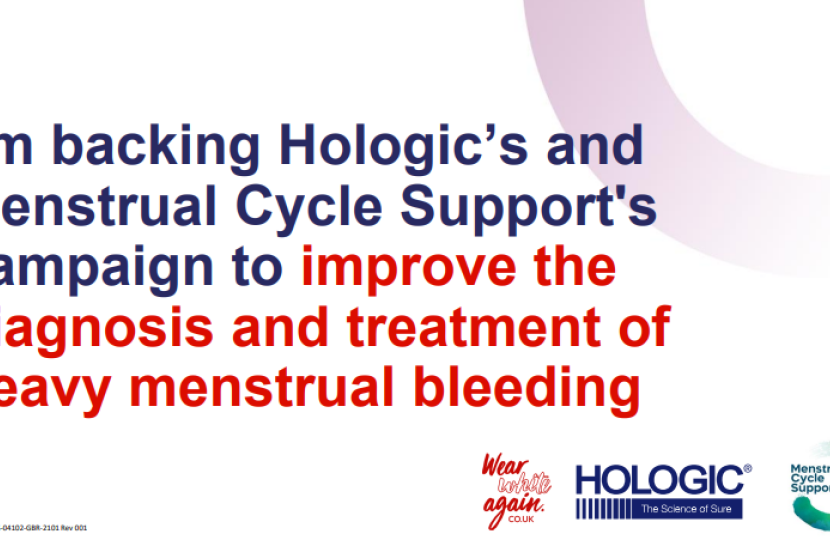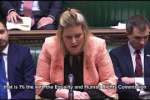
Mims Davies MP has lent her support to Women’s Health company Hologic and Menstrual Cycle Support’s campaign to improve awareness and treatment of heavy menstrual bleeding (known as menorrhagia)
With 1 in 3 women across the UK describing their periods as “heavy”, the campaign encourages the Government to act now to ensure women can easily access a diagnosis for the condition, and receive the care and treatment which is right for them.
Research reveals that 28% of women with heavy menstrual bleeding say it impacts their mental health, meanwhile 45% are stopped from undertaking daily activities.
More broadly, too often women’s menstrual health concerns are stigmatised – taboo subjects that family, friends, sometimes even doctors, are reluctant to discuss. If women are to receive the care they need, we must take action to destigmatise the conversation.
While there are already innovations in menstrual healthcare, such as menstrual education on social prescription to accompany medical intervention, as delivered by Menstrual Cycle Support, there continues to be the opportunity to deploy strategies which improve the quality of life of women who suffer from heavy menstrual bleeding, and minimise the health inequalities they currently face.
Hologic’s campaign, based on its recent report, ‘The right patients, the right setting, the right clinicians’, calls for:
- A more responsive approach to HMB, by setting an aspirational target for the average referral time for the condition if surgical intervention is required.
- Women to be offered treatment options which work for them; this includes no longer using hysterectomies as a routine treatment for HMB, and instead making wider use of more convenient outpatient settings for treatments.
- A change in how we talk about periods by recategorising heavy menstrual bleeding as a ‘chronic disabling’ condition, from ‘benign’, to recognise the impact it has on women with the condition.
Mims Davies MP said:
Every day in East Grinstead, Uckfield, and the villages, women and girls struggle to manage menstrual health conditions that impact family life, and their ability to study and work.
Now is the time to take action, and ensure women are no longer expected to ‘just get on with it.
It is vital that if girls and women are concerned about their periods, or other aspects of menstrual health, they speak to their GP.




